Oct
26
2009

Daniel was taken to Babylon before the destruction of Jerusalem. As the ruler over the king’s advisors, it is highly likely he was involved in the razing of Jerusalem.
The Lord sent Joseph into Egypt as a forerunner, established his house and integrated the old house of Jacob into it. Pharaoh was converted under the ministry of Joseph, humbled himself before Jacob and requested a blessing.
The Lord did the same thing with Daniel. A new house was being established in Babylon before the final demolition of the old Temple. Daniel ascended as “firstfruits”. He stood on the mountain of God as Abraham, as Moses. At the right hand of the power he would bring the curses of the Law raining down upon the Covenant breakers. As Abraham bargained with God, perhaps the mercy shown to Judah’s poor was the work of Daniel.
Continue reading
Comments Off | tags: Babylon, Bible Matrix, Cyrus, Daniel, Esther, Ezekiel, Haggai, Haman, Joshua, Mordecai, Nebuchadnezzar, Zerubbabel | posted in Biblical Theology, The Restoration Era
Jul
21
2009
or Cutting Off the Generations of the Wicked
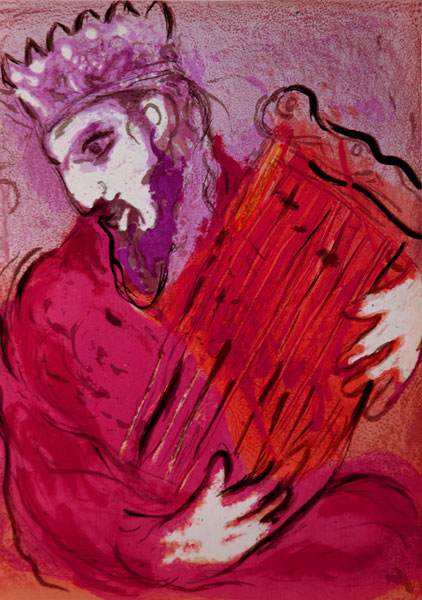
O daughter of Babylon, who are to be destroyed, Happy the one who repays you as you have served us! Happy the one who takes and dashes your little ones against the rock!
(Psalm 137:8-9)
A further comment on Psalm 137 (following Church and State and Liturgy as Prophecy):
The church has the power to excommunicate, but the state alone has the power to execute. In Joshua’s and David’s time, church and state were one, thus Israel’s army slaughtered God’s enemies judicially. In Mordecai’s time, the slaughter of Haman’s followers by the Jews occurred only after church and state became one under Mordecai’s new executive power.
You must be logged in to see the rest of this post.
Join now for a year for $15!
As an advisor to the state, the church gives the word, and offers the sacraments, but it is always the state that carries out the judgment — government. The state is the “outer court” into which the living sword-water flows. Some taste life and others taste death. [1]
Continue reading
Comments Off | tags: AD70, Babylon, Joshua, Mordecai, Nebuchadnezzar, Psalms, Zedekiah | posted in Biblical Theology, The Last Days, The Restoration Era, Totus Christus
Jul
14
2009
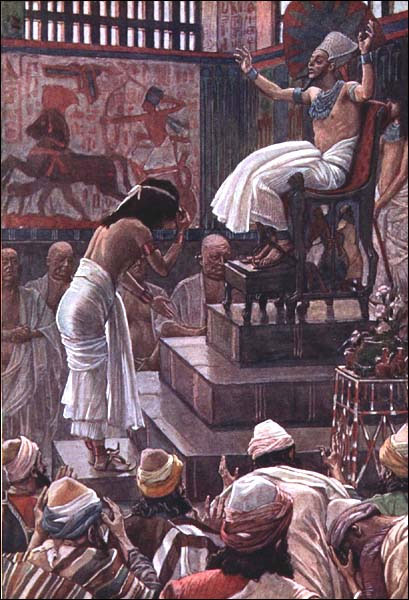
or Theonomy in the Bible
“…instead of Moses and Aaron challenging the powers that be, we have Herodian preachers crying “Peace, peace” when there is no peace. Nathan is not qualified to confront David because Nathan himself has been sleeping around.”
In his post Christianity as Comprehensive Cultural Tribunal?, timsmartt questions the validity of philosophy’s self-appointed role as an unbiased cultural referee and wonders whether Christianity should take that role:
Continue reading
Comments Off | tags: Aaron, Abraham, Against Hyperpreterism, antichrist, Daniel, Esther, Herod, Jethro, John the Baptist, Korah, Melchizedek, Mordecai, Moses, Nathan, Philosophy, Postmillennialism, Solomon | posted in Biblical Theology, The Last Days, The Restoration Era
Jun
29
2009
James Jordan’s work on the Jew-Gentile oikoumene set up in Daniel has far reaching implications.1 Peter Leithart writes:
“Yoder argues that from the time of the Babylonian captivity, the Jews developed a proto-”free church” model of community life. True in some respects. Jews didn’t have their own polity. But I’ve got doubts if that’s a fair characterization of Jews in and after the exile.
Continue reading
Comments Off | tags: AD70, Archaeology, Daniel, Esther, Exile, Hellenism, Mordecai, Nehemiah, oikoumene, Peter Leithart, Tertullian, Yoder | posted in Biblical Theology, Quotes, The Last Days, The Restoration Era
Jun
15
2009
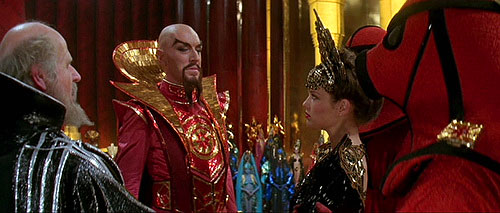
One major difference between Jordan and other preterists is his identification of Paul’s “man of sin.” Jordan is correct in naming the Herods rather than Nero because he understands biblical typology better.
Continue reading
2 comments | tags: Belshazzar, cherubim, Daniel, Esther, Film, Herod, James, James Jordan, Joseph, Mordecai, Nero | posted in Biblical Theology, The Last Days, The Restoration Era
Jun
12
2009

Isaiah’s visions of Israel’s restoration have nothing to do with a future millennial golden age for the Jews, or even directly with the first century, except by the events of the Restoration era prefiguring later history. His words were for his hearers, for both their condemnation and their hope in the near future. Why do we get him wrong?
Continue reading
3 comments | tags: David, Isaiah, Millennium, Mordecai, Noah, Restoration, The flood, Zerubbabel | posted in Biblical Theology, The Last Days, The Restoration Era, Totus Christus
Apr
16
2009
“Because of Christ we are thought of as fools, but Christ has made you wise. We are weak and hated, but you are powerful and respected. Even today we go hungry and thirsty and don’t have anything to wear except rags. We are mistreated and don’t have a place to live. We work hard with our own hands, and when people abuse us, we wish them well. When we suffer, we are patient. When someone curses us, we answer with kind words. Until now we are thought of as nothing more than the trash and garbage of this world.” 1 Corinthians 4:10-13
So, are God’s people to wear rags? Or should they be dressed well like Solomon or the woman in Proverbs 31? Or is that even the right question?
Continue reading
Comments Off | tags: Adam, Corinthians, Daniel, Ecclesiology, Ezekiel, Ezra, Joseph, Maturity, Mordecai, Nehemiah, Noah, Paul, Proverbs, Robes, Solomon | posted in Biblical Theology, Totus Christus
Apr
11
2009
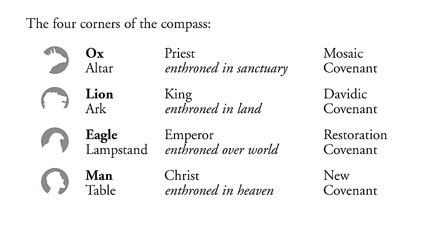
It was always God’s plan that Israel have a human king:
“When you come to the land which the LORD your God is giving you, and possess it and dwell in it, and say, ‘I will set a king over me like all the nations that are around me,’ you shall surely set a king over you whom the LORD your God chooses; one from among your brethren you shall set as king over you; you may not set a foreigner over you, who is not your brother.” Deut. 17:14-15
Like Adam, this dominion would only come by obedience: by servanthood to God and faithful mediatory witness to the Gentiles. But like Adam, they seized dominion and demanded “a king like the Gentiles.” With Saul, they had a king who palled around with Agag of Amalek whom Moses commanded to wipe from the face of the earth.
Continue reading
Comments Off | tags: Abimelech, Amalek, Babylon, Covenant Theology, Daniel, Exile, James Jordan, Malachi, Mordecai, Temple, Zechariah | posted in Biblical Theology, The Restoration Era
Apr
10
2009
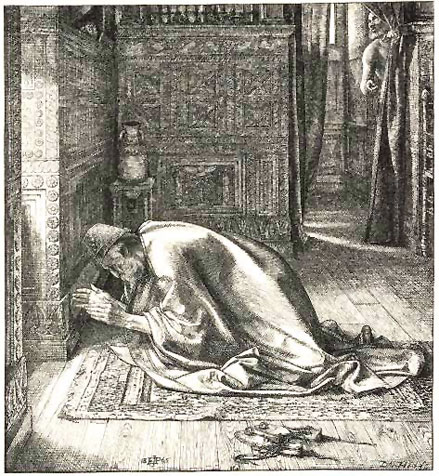
A new Adam (High Priest) ruled the wild animals of the Gentile kingdoms, but without a king this rule would be truly priestly. Daniel prefigured the nature of this new kingdom: obedience would bring persecution, and suffering as witnesses before the Gentiles would be the means of Gentile conversion. A new Israel would be the initial fulfilment of the despised, suffering priestly servant of Isaiah 53. When the Lord scattered His people for their sin, He also spread them to the four winds as witnesses to the empire.
Continue reading
Comments Off | tags: Daniel, Esther, Greek philosophy, Isaiah, Mordecai, oikoumene, Peter Leithart, Power of the Gospel, Typology, Witness | posted in Biblical Theology, The Last Days, The Restoration Era
Apr
10
2009
“Are we Western Christians truly suffering because of Christ? Or the lack of us standing up for Christ?”
Good point. Once again I would use the book of Esther. The role of restored Israel was to be witnesses within the world empire, as Daniel had been. It seems Mordecai sought to be like Joseph or Daniel, but by compromising Esther’s witness, Haman ‘usurped’ his role at the right hand of the throne (a pattern begun in the Garden of Eden).
However, God used the situation for good, and Esther provides us with an historical blueprint for events in the first century:
Continue reading
Comments Off | tags: Amalek, Esther, Haman, Mission, Mordecai, Witness | posted in Biblical Theology, The Restoration Era
































